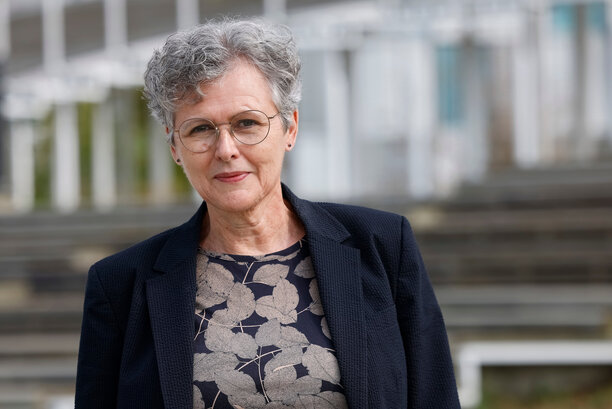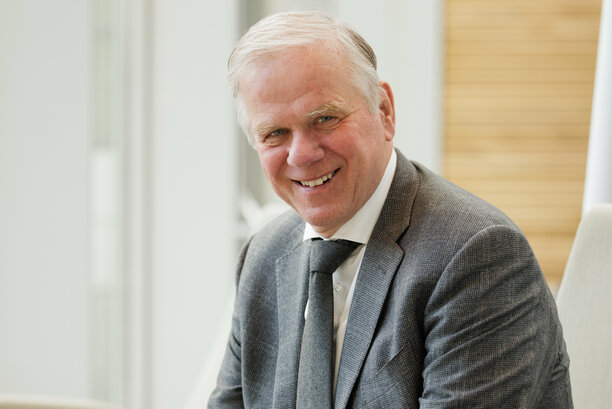TU/e honorary doctorates for building materials and mechatronics
Karen Scrivener (EPFL) and Martin van den Brink (ASML) will be awarded honorary doctorates from TU/e this year for their scientific contributions to their field.
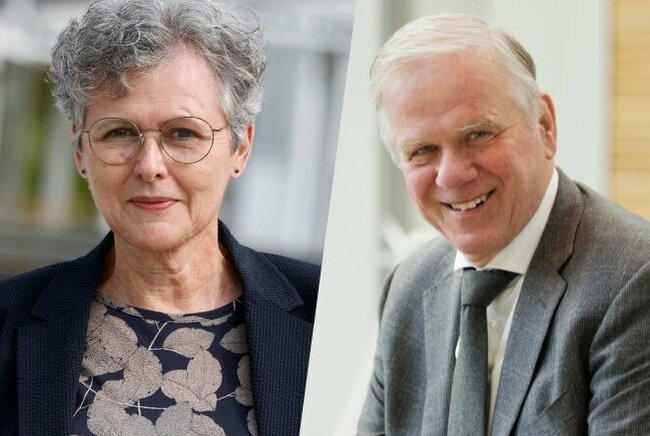
Each year, TU/e honors one or more people from outside the university for their significant contributions to a field of study. This year, they are Martin van den Brink and Karen Scrivener. As a professor and the head of the Laboratory of Construction Materials at the Ecole Polytechnique Fédérale de Lausanne (EPFL), Scrivener has done much pioneering research on the building materials cement and concrete. Van den Brink, President and Chief Technology Officer of ASML, is being honored for his enormous contribution to increasing knowledge about the (im)possible in the field of mechatronics, which combines mechanical and electrical engineering. The honorary doctorates will be officially awarded at the TU/e Research Day on June 13, 2024.
Karen Scrivener
Karen Scrivener is one of the most prominent and influential researchers in the field of cement and concrete with over 300 scientific publications. Her major contributions include understanding the microstructure, hydration mechanisms and durability of cementitious materials and, in particular, the invention of LC3 (limestone calcined clay cement) technology that enables a reduction of the CO2 intensity of cement by up to 40%. This technology is now deployed by companies in more than 50 countries.
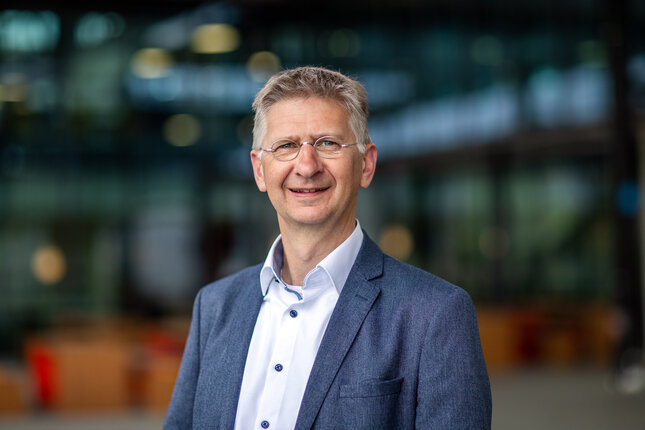
“Karen Scrivener is a leading scientist and her work on sustainability in the widely used building materials cement and concrete align perfectly with TU/e’s sustainability goals and ambitions,” says Theo Salet, dean of the Department of the Built Environment.
“In addition to research into new, more sustainable building materials, research into making concrete more sustainable is vital, especially in the coming years as I anticipate that concrete will continue to be a widely used building material.”
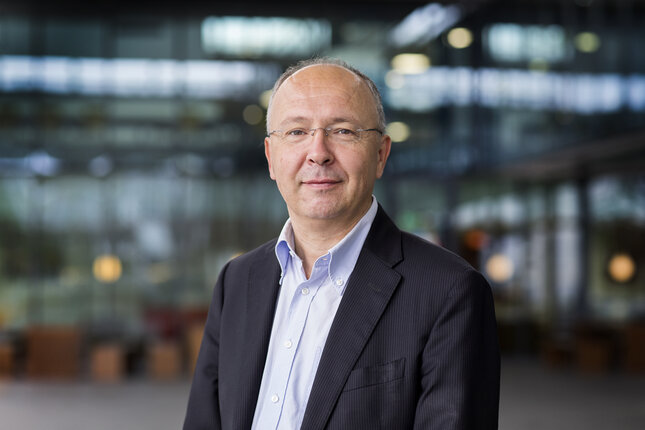
She is truly a pioneer in the profession and, in her own discipline, cement and concrete, she is an authority.
Jos Brouwers, professor of Building Materials
the honorary doctorate supervisor for Scrivener is Jos Brouwers, professor of Building Materials at TU/e. “From our group, I have been working with Karen for over 30 years and we regularly meet at conferences and scientific meetings on building materials. She is truly a pioneer in the profession and, in her own discipline, cement and concrete, she is an authority.”
“Not only in the scientific field but also precisely because of her impact on the construction industry,” says Brouwers. “This is an excellent opportunity to recognize an outstanding female scientist in the predominantly male-dominated construction world and to highlight her achievements. I look forward to broadening our collaboration and possibly doing more projects together.”
Martin van den Brink
Since starting at ASML in 1984, Martin van den Brink has proven himself a leader within the company. ASML owes its technological successes mainly to Van den Brink’s visionary leadership. He has always recognized the interdisciplinary nature of the challenges of complex machines, combining his deep knowledge of physics, materials, mechatronics, and electronics.
He is a leader in systems engineering with an inspiring style that demands the very best from himself and his staff.
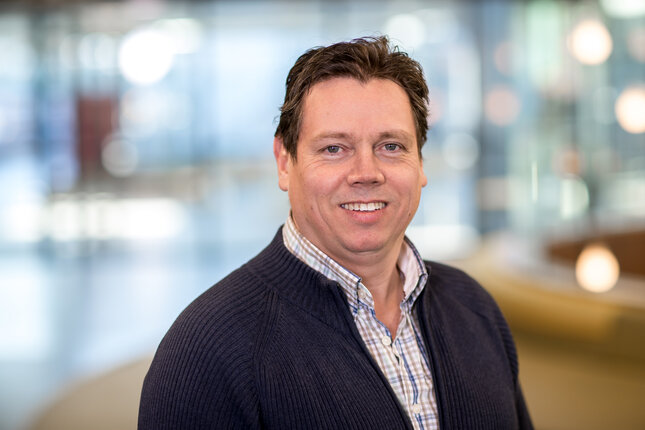
Van den Brink’s scientific impact is evident in his enormous contributions to the development of semiconductor manufacturing technology, particularly in the field of photolithography. His work continues to have a major impact on the development of smaller and more powerful microchips, which support many modern technologies and play a crucial role in various scientific and industrial applications.
“Based on his scientific excellence and his crucial role in industry and society, Martin van den Brink is an outstanding honorary doctor for our university. Awarding him the honorary doctorate is not only a more than deserved recognition of his achievements, but also of his contribution to the body of knowledge about high-tech systems, mechanics and materials science, and mechanical engineering in particular,” says Patrick Anderson, dean and honorary doctorate supervisor of the Department of Mechanical Engineering.
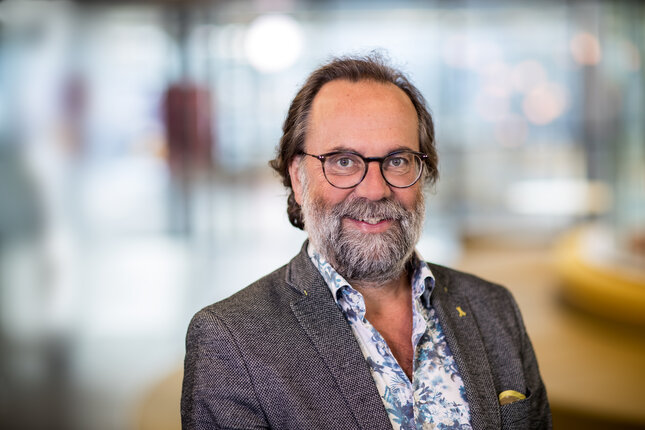
As an innovator and visionary, he is the undisputed technical-scientific brains behind ASML’s success.
Maarten Steinbuch, University Professor of Control Systems Technology
Maarten Steinbuch, university professor of Control Systems Technology and honorary doctorate supervisor, is also enthusiastic about Van den Brink’s upcoming appointment as an honorary doctor. “As an innovator and visionary, he is the undisputed technical-scientific brains behind the success of ASML, where he has shown himself to be a true master of integrating disciplines and systems engineering.”
Latest news

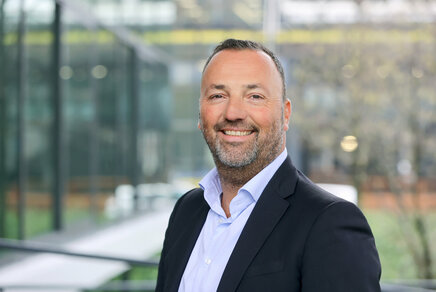
![[Translate to English:] [Translate to English:]](https://assets.w3.tue.nl/w/fileadmin/_processed_/e/0/csm_BvOF%202019_1031_BHF%20license%20TUe%20ILI%20copy_8a50884392.jpg)
